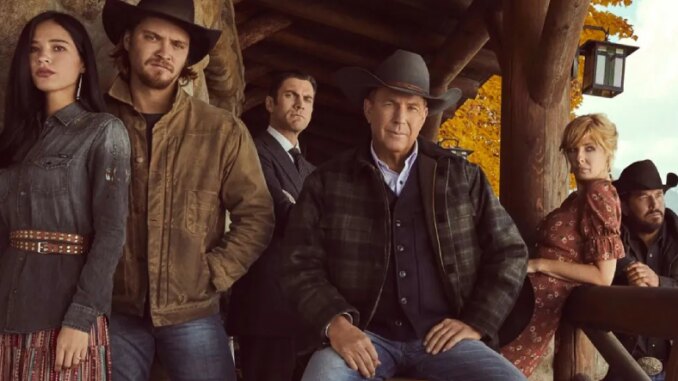
The final embers of the campfire have dimmed. The last, lingering shot of the Dutton ranch, bathed in the amber glow of a setting Montana sun, has faded from the screen. For millions, the "Yellowstone" finale wasn't just the end of a television series; it was the closing chapter of a cultural phenomenon that roared onto screens, redefining the modern Western and sparking a fervent, often impassioned, discussion about its impact and legacy.
From its debut, "Yellowstone" wasn't merely a show; it was an immersive experience, a visceral dive into the high-stakes world of the Dutton family and their relentless fight to protect the largest contiguous ranch in the United States. Its immediate impact was undeniable, a wildfire across the cultural landscape. It revitalized a genre long considered dormant, proving that the epic sweep of the American West still held magnetic pull. Suddenly, the wide-brimmed Stetson and the dust-caked boot weren't just costumes; they were statements. Rural boutique sales soared, Montana and Wyoming tourism boomed, and country music found a new, massive platform. The show became water cooler talk, transcending traditional demographic lines to capture an audience craving tales of raw power, unwavering loyalty, and the rugged individualism often romanticized in American lore. "Yellowstone" didn't just entertain; it permeated the mainstream, becoming a shared reference point in a fragmented media world.
Beyond the immediate buzz and tangible economic ripple effects, "Yellowstone" carved a deeper impression by holding up a mirror to complex, often uncomfortable, American truths. It tackled land rights, indigenous sovereignty, corporate greed, environmentalism, and the generational burden of legacy with a blunt force rarely seen on prime-time television. The Duttons, led by the stoic, morally ambiguous John Dutton, were anti-heroes forged in the crucible of tradition and violence. Their brutal pragmatism, their "us against the world" mentality, resonated deeply with a segment of America feeling increasingly marginalized or misunderstood. The show invited viewers to grapple with the blurred lines between right and wrong, between preservation and progress, between family loyalty and outright criminality. This thematic density wasn't always subtle, often veering into melodrama, but it was precisely this unflinching, operatic approach that fueled its passionate discussions, making viewers cheer and recoil, often in the same breath.
The legacy of "Yellowstone," particularly in the wake of its conclusion, is a multi-faceted beast. Foremost, it solidified Taylor Sheridan as a singular voice in contemporary storytelling, spawning an entire "Sheridan-verse" of prequels ("1883," "1923") and spin-offs that further explored the rich tapestry of American history and the West. This expansion proved the viability of building expansive, interconnected narratives outside of the traditional superhero or sci-fi genres, demonstrating that character-driven, period-specific dramas could command massive audiences. Furthermore, "Yellowstone" defied the prevailing streaming trends by succeeding on a linear cable network (Paramount Network) before making its mark on streaming, proving that traditional broadcast still had formidable power when backed by compelling content. Its success paved the way for more nuanced, regionally-focused dramas, showing that stories rooted in specific American identities could achieve global appeal.
Yet, the discussion around "Yellowstone's" legacy isn't without its caveats. Critics often pointed to its perceived political leanings, its at times heavy-handed dialogue, and its tendency towards the melodramatic. The show’s portrayal of certain issues, from Native American relations to the role of government, sparked debate about its accuracy and perspective. But even these criticisms, paradoxically, contribute to its enduring impact. For a show to generate such fervent discourse, to compel people to articulate their frustrations and allegiances, is a testament to its power. The "Yellowstone" finale leaves behind not a void, but an echo chamber of lingering questions: What does it mean to protect what's yours? Is the American West still a land of opportunity or a battleground for dwindling resources? What sacrifices are acceptable in the name of family?
As the dust settles over the fictional Dutton ranch, the true impact and legacy of "Yellowstone" won't be measured solely by its ratings or cultural cachet. It will be found in the ongoing conversations it ignited – about land, power, family, and the ever-evolving soul of America. The final chapter closed the book on the Dutton saga, but it opened a new dialogue, ensuring that "Yellowstone" will remain not just a television series, but a touchstone for understanding a pivotal moment in American popular culture.
